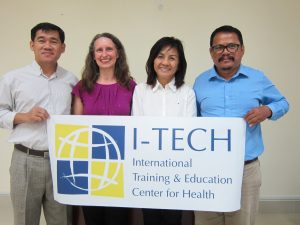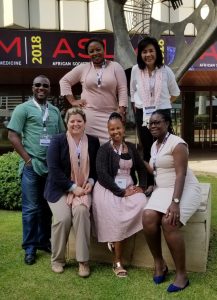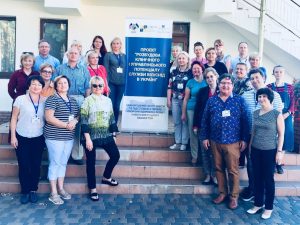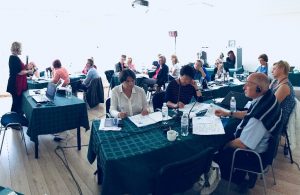From September 2013 to September 2016, I-TECH conducted an implementation science research project to improve laboratory quality in Cambodia. The primary objective of the project was to implement a mentored laboratory quality stepwise implementation (LQSI) program to strengthen the quality and capacity of Cambodian hospital laboratories. As a result, target laboratories improved their operations in the areas of: biosafety, organization, personnel, equipment maintenance, purchasing and inventory, testing accuracy, process management, documentation and communication.
The project recruited and trained four laboratory technician to be mentors, training staff from 12 referral hospital laboratories in quality management systems (QMS), and reinforcing skills acquisition through in-person mentoring. Participating laboratories reported a 36% increase in quality management, 29% improvement in data management, and 25% improvement in specimen collection and handling. The laboratories established the foundational practices of a QMS, and the LQSI program has improved the recognition of the laboratory within the hospitals.



